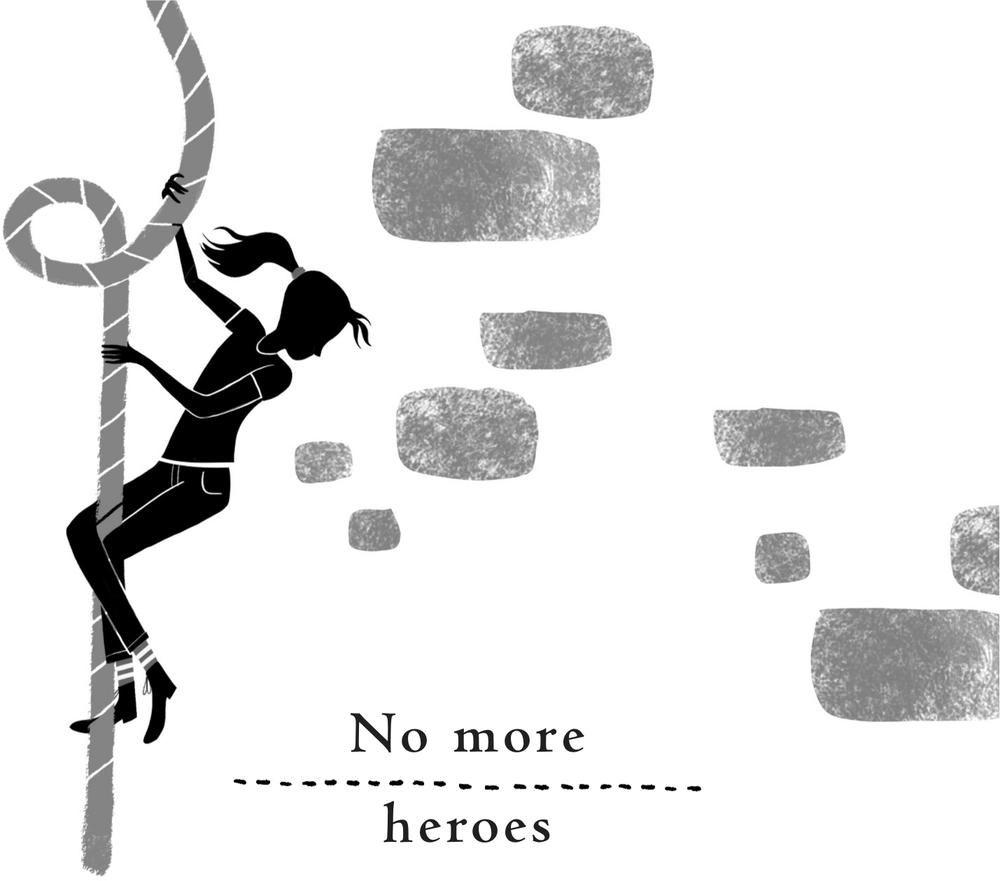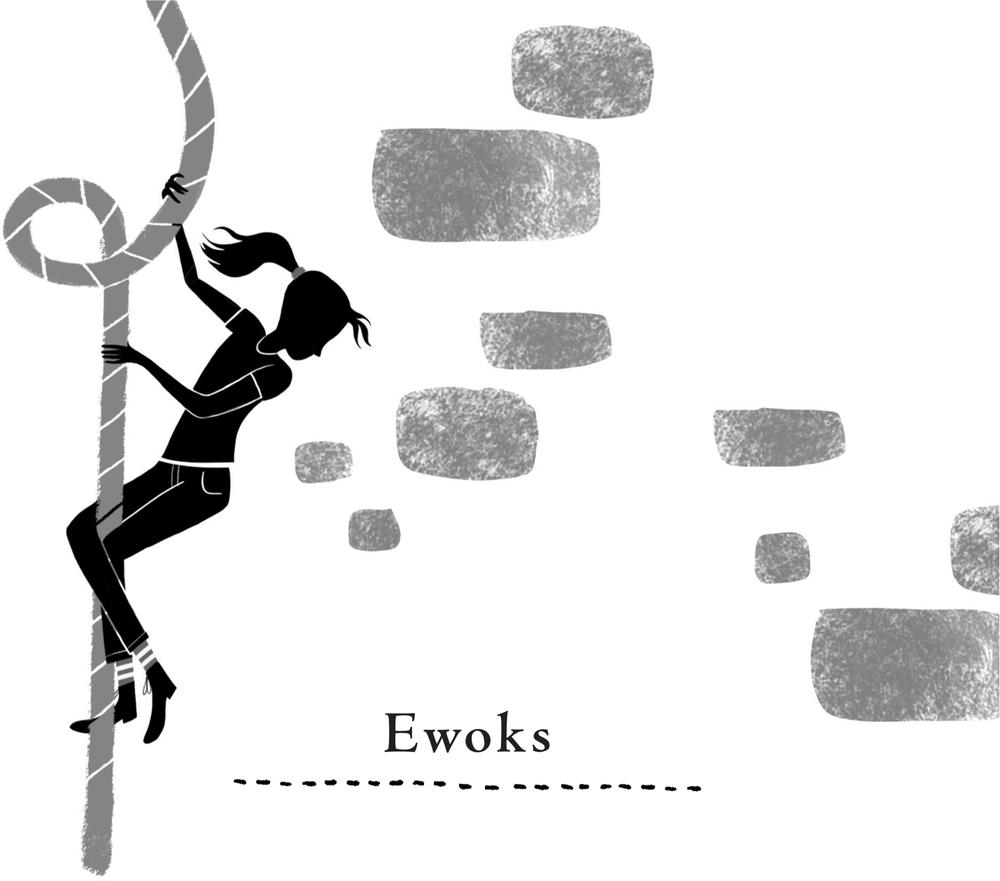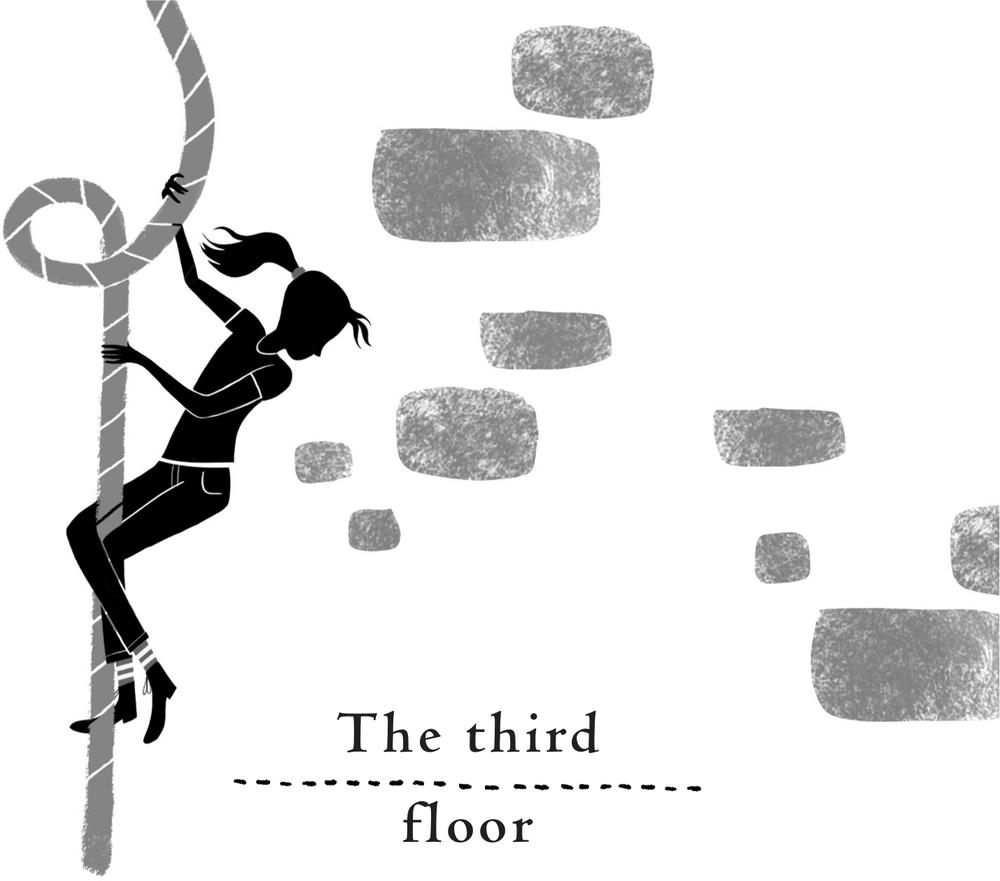Saving Sophia (10 page)
Authors: Fleur Hitchcock


We spend that night in a bus shelter under Ned’s silver-foil survival blanket. It’s raining hard now and I know that I’m cold. Sophia must be freezing; she’s got bare legs. We huddle together, sharing a tomato and a piece of stale pitta bread with Pinky and Perky, collecting drinking water in a hollow made out of the corner of the survival blanket.
We gaze long and hard at Ned’s egg, wrapped in his school sock safe in the mug. He’d curled it right round, so that the egg’s in a grey nest.
“Oh – how sweet,” says Sophia.
I try not to cry. It’s only an egg. “They’re very tough, egg shells,” I reply, my voice slightly wobbly. “They’re made of mostly grit – or calcium.” I lay it back inside the sock nest. “Save it until we can cook it?”
Sophia nods, and nibbles another crumb of pitta.
A man walks past with a dog. He’s texting and doesn’t even look at us. I tense, as if I might run and get his attention, but Sophia’s talking again.
“Tell me a story, Lottie – tell me one of your book stories.”
“Really?” And I risk it. “I thought you thought they were stupid.”
“I never said that, it’s just—”
“What?”
“It’s just that they’re not very helpful when we’re trying to do something.”
“Like climb out of a window?”
“Yeah – like that. If you think about it, they’re just not very realistic, are they? I mean, I know Ned had a rope in his bag, but the chances of that were a million to one. Just because one of the characters in a book had a rope in her bag doesn’t mean you’re suddenly going to have one.” She looks up at me. “Does it?”
“No – I don’t suppose it does.”
“What I mean is, they’re just stories – they’re escapism, not real life.”
I think about how to say it. “But your life is like the stories,” I say. “Larger than ordinary life. Almost incredible.”
Sophia nods her head and takes a long time to answer. “Yes it is, but it’s not all cut and dried like it is in books and films. My life is – messy. I can’t explain.” She looks out into the rain.
“Tell me about the good bits, tell me about your mum,” I say.
“Mum? Well, she’s an actress.”
“Actress? I thought she was a singer?”
“Yeah, a bit of both, musical comedy, opera – that sort of thing.”
“I see.”
“And she laughs a lot, has blonde hair, blue eyes, plays the piano – she used to have fans and fan letters, and then she started to buzz around the world, and I went, too.”
“So when did you live in the flat over the tube station?”
“Oh – that, yes.” Sophia coughs and throws her plait back over her shoulder. “That was in between
times, when she was resting.”
“Oh – I see.”
“It was wonderful but it’s all in the past now. But hopefully we can find the office tomorrow, find out where she is; catch her before she leaves the UK. We need to press on.”
“Tonight?”
“Tomorrow will do,” says Sophia. “I’m pretty sure she’s here till Tuesday.”
I wonder how, without knowing her mother’s stage name, Sophia can be so sure of it. But I’m too tired and I let it pass.
We sit in silence while two cars whizz past, splashing through puddles and soaking the bus shelter. A few drops fall on the survival blanket and trickle down, yellow under the streetlight.
“I could tell you about a real life hero, if you like,” I say.
“Yes?”
“There was this woman – she was called Irene, she lived in the house up the road from us…”

The centre of the city comes as a surprise. We walk over a bridge above a river and into some quiet streets of houses, but within minutes we’re surrounded by people, hundreds of them doing their Saturday shopping. Rushing back and forth. We stand there looking damp and mad, with a pound and two Roman snails between us and destitution.
Sophia shelters in a doorway and I follow. We watch the families with shopping and food, and proper clothes.
“We need to find Pinhead’s office, then we can
break in and find out where Mum is.”
I would now eat paving stones if I could work out how to cook them. Everything is clouded by a desire for food, but on the streets there’s nothing to eat but cardboard and pigeons.
I think about Irene, walking across Scotland and wonder what she ate to keep going. Birds’eggs? Mud? Moss? Any of them are probably more nutritious than cardboard.
We drink water from the tap in the public toilets, emerging into a crowd of people dressed as teddy bears.
“What’s going on?” Sophia asks, shivering outside the toilets.
Behind the teddies, a Princess Leia and two people in Star Trek uniforms duck into the loos.
I stare after them.
“Oh, I get it. They’re Ewoks,” says Sophia.
“What?” I ask.
“Ewoks. From
Star Wars
. That’s what they’re dressed as. It must be a carnival thing.”
Watching them moving, I realise that I can hardly see the people underneath the clothes. “We could find the office in disguise and creep
in under cover of sci fi,” I suggest.
Sophia widens her eyes. “Are you serious?”
“Yes. In—” But I stop myself. “I’m sure people do that kind of thing all the time.”
“In what book are there aliens in PE kits?” she says.
I kick the pavement. “Have you got a better suggestion?”
By some giant wheelie bins, we find a carton of cardboard tubes and a length of green carpet. Also a load of used but only slightly cheesy tinfoil, ten rock-hard croissants and a packet of pink paper cups. We eat the croissants and tear holes in the cardboard tubes so that the paper cups stick through them. Covered with tinfoil they look like a two-year-old’s vision of a submachine gun.
“They’ll do,” says Sophia, pretending to shoot the wall.
I pick up my gun. I’ve never felt so self-conscious, but once we step out into the hordes of badly dressed aliens, no one even glances at us.
A lorry grinds slowly through the middle of the crowd with a band on the top playing something
loud but oddly muffled. They shed short lengths of silver cloth that I rescue and drape around my neck.
From another lorry, a silver hat frisbees into the crowd. I scoop it up and jam it on to Sophia’s head. A little further on, we gain a papery skirt, a plastic sword, and a breastplate. We’re starting to look the part.
“This way,” says Sophia, drifting to the right of the main street.
Tall brick buildings rise from the pavement, their windows blacked out. As our fellow aliens wander through the streets, the huge windows of the office blocks gleam with their shattered reflections.
Security guards loll in the doorways, pointing and laughing at the costumes.
“Excuse me.” Sophia walks up to one of them. “Any chance we could use your loo?” She hops from foot to foot.
The man scratches his head. “Um – don’t see why not,” he says and shouts back into the darkness of the building. “Here, Steve, can these kids use the toilets?”
“Sure,” comes the reply.
Sophia pulls my arm and, confused, I follow.
And then I understand.
On the wall is a list of the people who use the offices.
Pinehead Associates appears to be on level three.
“You’ll have to take the lift,” says Steve, who turns out to be a slack-jawed tapeworm staring at a screen dotted with footballers. “I could show you, but I’m watching—”
“S’OK,” says Sophia breezily. “Where do we go?”
“Any of the floors, they’ve all got toilets. If you like, you can both go to different ones.” His eyes never move from the TV. I glance back at the doorway. Security guard number one’s still glued to the aliens outside.
“Perfect,” I say, as we head towards the lift. “Do you think they recognised you?”
Sophia pauses and shakes her head. “No – no – I don’t think so – do you?” I look back at the security guards. Neither of them seem to be paying us any attention. “What’s the plan?” I whisper.
“We’ll break in, see what we can find,” says Sophia. “But perhaps we should keep the lift going up and down, we could pretend we’ve gone to different toilets on different floors like he said.
Let’s make them think we’re playing in the lift.”
I follow her in, see her press 3 and do my best to keep reality at bay. “OK,” I say. “Fine – it’s a plan.”

The third floor is exactly what I expected. Pot plants, air conditioning, weird padded silence from a white thickly carpeted floor. For a millisecond, I feel jealous; I’d like that carpet, those leatherette chairs, but it occurs to me that no one who works in the building has ever kept chickens or potted up cuttings or made their own hedgerow jelly, and I experience a slight sense of superiority as if I’ve glimpsed another dimension that they don’t even know exists.
Sophia stops outside a glass booth. On the door it says
T. R. Pinehead
.
She turns the handle.
The door’s locked. Of course it’s locked, but above it is a keypad. “Any ideas?” I ask.
Sophia sighs. “Date of birth? Mine, his, Mum’s?” She taps at the keys. “Random numbers?”
“Favourite songs?” I ask. “All one number? Actually – let’s have a look at that.” I peer at the pad. The seven and the eight are both worn and grubby with use – all the others are pristine and shiny. I try 8787, then 7878, then 7887, then 7788 and the door clicks open.
Sophia looks at me. “Clever,” she says, pushing open the door.
“We’ll have to be quick, though,” I say, following her inside. “That football match was in the second half. He’ll notice if we’re not back by full time.”
Standing here, in the office, I feel utterly terrified. This is not the kind of thing I’m meant to do. I do not do breaking and entering. I do top-quality English Comprehension and play the flute. I do not sneak around reading other people’s secrets, especially not scary people.
I try to forget that what I’m doing is illegal and dangerous. Instead, I look around.
It’s all very white and squishy, lots of leatherette
and deep pile carpet, and more silence. A single white computer sits on an enormous desk that is otherwise utterly blank.
“Where do we start? What are we looking for?” I ask.
“Here,” says Sophia, moving towards an old green filing cabinet, standing by itself and looking out of place in this smooth new office space. “I’ve seen him lock it after he’s put things in it. We might find his address book or diary.”
“Are you sure?” I open a long rolling cupboard door to reveal ranks of white filing cabinets, all unlocked.
“Yup,” she says, opening a desk drawer. “It’s just that we need the key.”
“Or a screwdriver – that’s what they always use…” I say. Sophia glances up at me. “Well, they do. Even Dad uses one when he can’t open things.”
I find a pair of large scissors in a box underneath the desk and try slipping the blade into the lock. It doesn’t work – it’s obviously the wrong thing to use.
“Bingo,” says Sophia, holding up a tiny key.
But we’ve bent the lock, so even with the key it takes ages to get the drawer to open.
And when it does, I don’t understand what we’ve found.
“What are these?” I ask, flicking through ledgers filled with hundreds of tightly written numbers.
Sophia shrugs. “Or these?” she says, pointing at a collection of flash-drives and camera storage discs. “We should take them,” she decides.
“We need to copy them,” I say.
She stares at me.
“Otherwise it’s inadmissable evidence.”
She still stares at me.
“If you take them, you can’t prove they came from here, but if you copy them, then they won’t even know you’ve seen them. If it ever comes to a police investigation, then the police have to find them here otherwise they can’t use them as evidence.”
“Let me guess. You know that because it’s in something like
The History of the Swollen Shrew?
Or
Dark Days in Kansas?”
“No. This time I heard it on the radio.” I smile.
“OK, I get it,” says Sophia. She reaches into another drawer and pulls out a brand new, unopened flash drive. “They always have stacks of these.”
She switches on the white computer, and copies the disc files from the individual chips to the new
flash drive, while I begin to scan the ledger into the photocopier.
“What about his diary – should I be looking for it?” I ask.
“I’ll check his engagements on this.” She starts to click through Pinhead’s emails on the computer.
I’m so intent on the photocopying, I don’t see what Sophia’s doing, and don’t look up until I hear her make a little choking sound.
“What is it?” I ask.
“Nothing – we have to go.” The screen on the computer fades into black.
I scoop the copied pages from the printer, and turn the ledger over to get the last few entries.
“I’m done,” she says. “Do you want to do the lift thing? Or shall I?”
“Nearly finished,” I say. “We could do it together.”
We pick up every scrap of tinfoil, I stuff the photocopied diaries into Ned’s bag, and we try to put the filing cabinet lock in the right position.
“Right,” says Sophia, putting the key on the window sill. “Time to get out of here.”
But we don’t have time, because the lift pings. We stare at each other. Sophia pushes the office
door shut and runs for the big white cupboard of filing cabinets. I stuff the cardboard guns into the broom cupboard and dive for cover under the kneehole of the huge desk that is too small and too public.
I hear the peeping of the keypad outside. The door handle clunks and someone comes in. I draw my knees into my chest and barely breathe.
“So do you think it was them?” It’s Wesson’s voice.
“Bound to be.” Someone tries the drawer of the green filing cabinet. I hold my breath but it stays closed. “Haven’t got in here, though, have they, so what’s she playing at?” A man’s voice. Pinhead.
Something sounds like it’s being dragged across the carpet. I really hope we haven’t left anything out there.
Knees appear right by my head. Pinstripe-suited ones. Then very close by, I hear the high-pitched beeps of someone putting numbers into a phone. Pinhead starts talking.
“Yeah, it’s me. Yes, we’re on the trail. The security boys downstairs rang me.” Silence while he listens for a bit. “Yeah, Sophia, and the other girl – they’re somewhere in the building.” He listens. “Look,”
his voice softens, like he’s just flipped the charm switch. “Don’t worry – they won’t be able to stop us, we’re nearly there.” More silence. “Yeah, yeah – I’ve got it covered – there won’t be any loose ends. You know me, I never leave loose ends.”
If I had to run, I couldn’t. My foot’s fallen asleep.
There’s a sound of sticky tape coming off a dispenser.
“Look – it’s fine – it’s all safe, no one knows anything – no one even knows about this phone. There’s nothing leading from me to you, nothing leading from the warehouse to me. No one knows anything. It all looks kosher.”
A pause. And I think about how different he sounds. Not at all like the man that was charming Miss Sackbutt in our kitchen.
“Yeah – yeah. Anyway, it’s just a blip, they’re just children, tiny schmucky children. Don’t worry about it. I’ll take care of them – no problem.”
The phone clunks on to the desk above my head. I look up instinctively, and to my amazement see a huge bundle of cash taped to the underneath of the desk. I draw myself away from it.
“What did Jim say?” asks Wesson.
“Wants to keep his nose clean – worried about
his public reputation.”
A different phone beeps. A call in or out? “Yeah? No, I don’t
actually know
.” Pinhead’s voice is different, more irritated than in the last call. “Yes – yes – don’t worry, I’ll find her.” Fingers drum on the desk above my head. “No – I said I would, OK? Yes, I lost her but I’ll find her. Don’t panic and don’t hassle me – I’m doing my best OK?”
The phone clunks back on to the desk.
“And?” says Wesson.
Pinhead’s talking: “She’s antsy, she’s worried about her little darling – but it’ll be all right. OK, let’s find those kids, and this time, if I catch that toe-rag Sophia – I swear I’ll kill her.” His hand reaches under the top of the desk, towards the money.
I pull back. Instead of taking the cash, the hand holds a mobile phone under the counter top. With his other hand, he presses sticky tape to either side until the phone is stuck fast to the underside of the desk.
“Right – time for me to get out of here. You all right staying here, darling? Keep a look out and give me a ring if anything happens. I’ll go and
search the rest of the place.”
“Of course, Trevor, love. Take care.”
Then there’s the long sticky sound of kissing.
